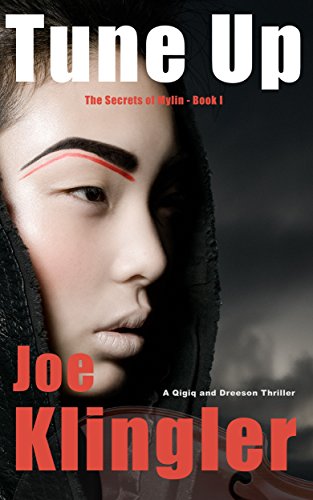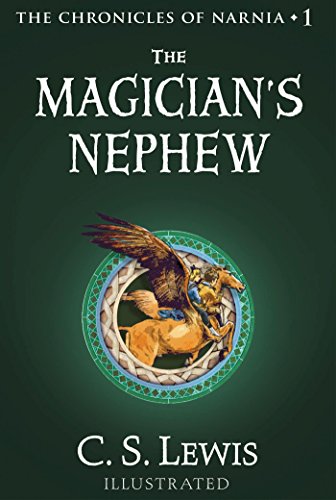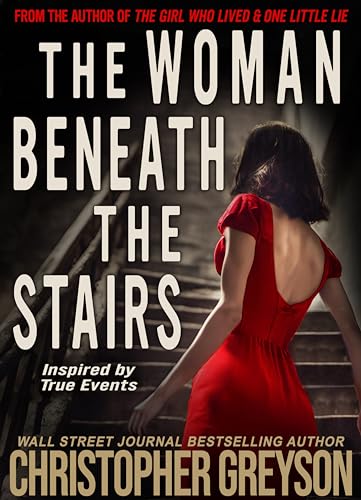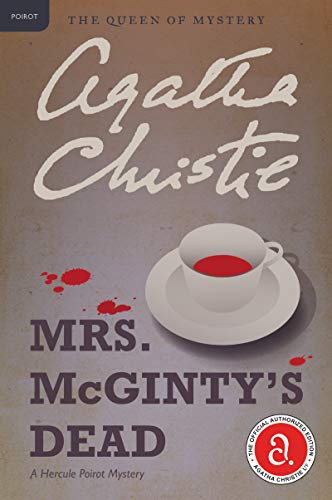On Friday we announced that Jake Needham’s The Umbrella Man (An Inspector Samuel Tay Novel) is our Thriller of the Week and the sponsor of thousands of great bargains in the thriller, mystery, and suspense categories: over 200 free titles, over 600 quality 99-centers, and thousands more that you can read for free through the Kindle Lending Library if you have Amazon Prime!
Now we’re back to offer our weekly free Thriller excerpt:
The first bomb cracked the Hilton like an egg; the second gutted the lobby of the Marriott; and the third peeled the front off the Grand Hyatt. Three massive explosions, all at American hotels in the heart of the city, and all within a few horrifying seconds. Hundreds are dead and thousands are injured. Singapore is bleeding.
Inspector Samuel Tay is a senior inspector in the Special Investigation Section of Singapore CID, but he is frozen out of this investigation from the beginning. He’s made serious enemies in Singapore’s Internal Security Department, and he has even more enemies at the American embassy, so Tay is assigned routine cases while his colleagues join with the CIA and the FBI in a feverish search for the bombers.
Three days after the explosions, the smell of death still sticky in the city’s air, Tay is sent to a run-down apartment near the Malaysian border where two children have found the body of a Caucasian male with a broken neck. Tay feels an immediate connection with the dead man, although he doesn’t think he has ever seen him before.
As Tay searches the dead man’s past for clues to who he was and who his killer might have been, Tay’s own past begins to give up its secrets. A long-dead father he can barely remember reaches out of the grave to point to the truth about both the murdered man and the bombings. And the horror of Singapore’s destruction becomes a personal horror for Samuel Tay.
And here, for your reading pleasure, is our free excerpt:
THE UMBRELLA MAN
An Inspector Samuel Tay Novel
by
Jake Needham
E-book editions published by
Half Penny Ltd, Hong Kong
so now it’s early in the morning
at the longitude of Memphis
and the sun is setting sweetly on Hong Kong
and the big plan is just to keep spinning
‘cause the big bang is only just beginning
and sometimes it’s all that we can do
just to hang on
–‘Garden of Simple’
Ani DeFranco
ONE
SAMUEL TAY PUSHED himself up from the chair and walked over to the French doors that led to his small garden. He opened them and stepped onto the brick pavers in his stocking feet.
Shaking a Marlboro out of the pack in his pocket, he lit it and stood quietly smoking. The fumes made little swirls and eddies in the air and Tay followed them with his eyes.
He was still trying to quit, of course. He was always trying to quit. His best effort to date had been twenty-nine days. Not good, but not that bad either. How he saw it generally depended on whether he was having a glass-half-empty or a glass-half-full kind of day.
This had been a glass-completely-empty kind of day.
And of course Tay didn’t know it yet, but it was just about to get a whole lot worse.
Tay lifted his arm and looked at his watch. Later, he would remember it had been exactly 7:55 pm when he heard the sounds.
Two almost simultaneous rumbles off in the distance.
Then, a few seconds later, a third.
BOOM. BOOM.
Pause.
BOOM.
Like that.
Tay lowered his arm and looked around.
Thunder?
He glanced at the sky, or at least at the part of the sky he could see over the houses surrounding his garden. No, it was clear.
Not thunder then. So what had he heard?
It occurred to Tay almost immediately, of course, that it could have been the detonation of bombs.
There had never been a bombing in Singapore, but that did not mean there could not be one. Tay was a police inspector, a twenty-year veteran of the Special Investigations Section of the Criminal Investigations Department of the Singapore Police Department. He had seen more than enough to believe that anything was possible.
Tay lived on Emerald Hill Road, a quiet dead-end street in a sleepy neighborhood of classic row houses. It was an area steeped in dignity and tranquility, yet it was barely a hundred yards from busy Orchard Road. Half of Singapore’s international hotels were on Orchard Road. Alternating with mammoth, multi-story shopping malls, they formed two unbroken ranks of massive structures that lined both sides of the six-lane road for mile after mile. If there were ever to be a bombing in Singapore, Orchard Road would be at the top of any bomber’s list of choice locations.
But Tay simply could not bring himself to believe there had been a bombing in Singapore on this night or, for that matter, that there would be on any other night.
Even an inspector in the Singapore Police reacts to such an improbability just as most of us do, reasoning that the frightening, the utterly unacceptable, cannot really be happening despite what the observable facts might suggest. When we are roused from our beds in the quiet of the night by our front door smashing open, the first thing we tell ourselves is the sound must be something other than that. Something that is entirely innocent. Something that is not scary at all.
Tay listened carefully for any clues as to the origin of the noises he had heard, but the evening sounds from his little garden now seemed entirely normal. Nothing at all came to his ears now that ought to make him uneasy.
Yet he was uneasy.
Ordinarily, Tay wouldn’t even have been home yet. Under normal circumstances he wouldn’t have been there to hear the sounds and wonder what they were. But this had not been a normal day and these were not normal circumstances. He was home standing in his garden this evening, smoking a cigarette, because of Mayling Aw.
Mayling was an unremarkable woman of twenty-four who had come to Singapore almost a year earlier from a God-forsaken village somewhere in China that Tay couldn’t have found on a map even if he tried, which he hadn’t. She had come to stay with her sister. Mayling didn’t tell her sister she was pregnant until after she arrived, and five months later she gave birth to a baby girl. While she was in the hospital her sister disappeared, ran away to Indonesia some people said, and Mayling Aw was left alone with her new baby in her sister’s little Housing Board flat out on the far edge of Singapore, all the way up to the Jahor Strait.
Mayling knew no one in the entire country. She had no money and no job and she had no prospects of getting either one since she was in Singapore on a tourist visa and it had expired. She spoke neither English nor Mandarin and was able to communicate only in a Chinese dialect which some people said was Hakka and others swore was a variation of the Xiang dialect spoken in the Sichuan region. Later, looking back, no one could even say where she was getting food since she knew no one to ask for help. Perhaps, some said, she was stealing it.
It was a mournful but banal story, an unremarkable variation on a wretched, but common tale of one more lost and battered soul adrift in the world. The truth was no one really gave a damn about Mayling Aw. Not until two days ago. That was the day Mayling Aw became famous.
On Wednesday afternoon, Mayling climbed the stairs to the roof of the apartment building where she was staying. As Tay pieced it together later from the interviews he and Sergeant Kang conducted, she walked back and forth on the roof for nearly an hour. A maintenance man noticed her there, but he thought nothing of it since it was common enough for people to go up to the roof to have a smoke.
It was about four in the afternoon when Mayling pulled herself up onto the low wall that edged the roof and sat down. Her palms were pressed against the pitted concrete and her legs dangled straight down the side of the building. The twelve-story drop to the ground didn’t seem to frighten her.
Eventually someone saw her and a crowd gathered below. When the police arrived, two patrolmen made their way to the roof. When Mayling saw them, she started screaming and waving her hands. Neither patrolman could understand the language she was speaking, but neither were they in any doubt as to what Mayling was saying. She was telling them to stay away or she would jump.
That was why they didn’t approach her. They remained about thirty feet away and tried to get her to talk to them. At first they spoke Mandarin since the woman was of Chinese appearance but, when Mayling didn’t appear to understand them, they switched to English. They could tell she didn’t understand English either, but it didn’t really matter. They weren’t trying to start a conversation.
Two other patrolmen had slipped onto the roof through a different stairwell and they crept up behind Mayling while the first two patrolmen distracted her. The taller of the two men, a policeman of Indian appearance identified as Singh by the black plastic plate over the breast pocket of his light blue uniform shirt, threw his arms around Mayling and with a single swift jerk pulled her off the wall and back onto the roof. She didn’t try to struggle or run. She just sat there in the accumulated grime of that rooftop, one leg folded under her and the other stretched out in front, and sobbed into her hands.
The four patrolmen exchanged embarrassed glances and shifted awkwardly from foot to foot until two more patrolmen arrived on the roof with information they had obtained from a neighbor as to which apartment Mayling occupied. Singh and his partner gently lifted the still-sobbing girl to her feet and took her downstairs to her apartment, hoping they would find someone there who could calm her down.
That was where Singh found Mayling’s baby girl. She was floating face down in a bathtub half full of dirty water.
The story appeared the next day in the Singapore Straits Times. The young reporter who wrote the piece spun it effectively into a melancholy tale of bad luck and trouble, and the story was quickly picked up by most of the regional dailies in Asia. Within twenty-four hours the European and American press picked it up, too, and CNN and the BCC even briefly added the story to their news cycles.
A kind of fame had come to the lost, forgotten little girl from China stranded in a world about which she knew almost nothing and understood even less. Mayling Aw had been forgotten and ignored until she killed her child and tried to jump off a twelve-story building. Then, in a twinkling, she became an international celebrity.
Tay had drawn the case. There wasn’t much to investigate. Nonetheless, he had to assemble the investigative papers and so he had thought about Mayling Aw all day. And the more he thought about her the more disgusted he became. He was sick to bloody death of the world and the wretchedness of its endless, tawdry miseries. And he was angry to the very bottom of his soul at the ghoulishness with which people watched what they did to one another.
So it was because of Mayling Aw that Tay had left his office and gone home early that day. It was because of Mayling Aw that he was standing in his garden smoking a cigarette when it happened.
And it was because of Mayling Aw that Inspector Samuel Tay was at the center of it all the night Singapore began to bleed.
TWO
TAY STOOD ON his narrow front porch and held the door open with one hand. He listened carefully for anything that might explain the sounds he had heard.
There was something peculiar in the air, although Tay couldn’t decide what it was. It wasn’t a noise exactly, more of a dull resonance like an echo from a crowded football stadium somewhere off in the distance. It was more of a presence than a sound really, but it felt large, and it felt frightening.
Tay’s house was a three-story structure with a tiny front garden surrounded by a high wall of white-painted brick. A heavy gate made of filigreed black iron bars stood in a low archway and through it Tay could see out to Emerald Hill Road. A young girl wearing a green and white school uniform was holding a bicycle as if she had been pushing it along, or perhaps she had been riding it and just jumped off. In either case, now the girl was standing stock still, her head twisted back over her shoulder in the general direction of Orchard Road. Reflexively, Tay glanced in the direction she was looking, but from his position on his front stoop he could see nothing but the inside of his own garden wall.
That was when Tay registered the smell. It took him a moment to recognize it, but then he did. It was like the smell of a construction project.
Another huge shopping complex was being built on Orchard Road right at the end of his street. Perhaps there had been an accident there. Perhaps a crane had fallen or a part of a structure had collapsed and what Tay smelled was the dust thrown up by the impact.
Tay stepped back inside his house and slipped on the pair of black loafers he had abandoned by the front door. He checked his pockets for keys and, when he found by some miracle he actually had them, he went out again and let the door close behind him. He walked quickly down the two steps to his front walk and pushed out through the gate to the street.
The schoolgirl remained frozen where she was and paid no attention to him. He looked in the same direction she was looking, but he could see nothing out of the ordinary.
He felt rather than saw the woman who walked up behind him.
“What was that noise?” she asked.
Cindy Shaw lived two doors north of Tay on Emerald Hill Road. She was either widowed or divorced, Tay wasn’t sure which, but she had made her interest in him so plain and pursued it so embarrassingly that it had become a major preoccupation of Tay’s life to avoid her at all costs. He generally made it a habit to take a quick glance at the road outside his gate before coming out just to avoid something exactly like this happening, but he had been so preoccupied on this occasion that he had forgotten.
Keep it simple, Tay reminded himself. Say nothing that might start a conversation.
“Those sounded like explosions,” Cindy said while Tay was still thinking about what to say. “I think it was a bomb. Maybe more than one.”
“I doubt it,” Tay said automatically, looking back over his shoulder at her.
Cindy glared at him so belligerently that he turned his head away.
“Why?” she snapped. “Why do you doubt it?”
“There are any number of things that could—”
“Rubbish,” Cindy snapped. “The world’s gone crazy. Bombs blowing up somewhere every single day. People killing themselves to kill other people they don’t even know. It can happen here just as easily as anywhere. Those were bombs.”
“I really don’t think—”
“Why aren’t you investigating? You’re a policeman. You’re supposed to be protecting people like me. Go and investigate.”
It was the perfect opening and Tay was not about to pass it up. He started nodding his head even before Cindy stopped talking.
“You’re absolutely correct,” he said. “I’m going right now.”
Tay turned away without another word. Propelled by a potent combination of his desire to escape Cindy Shaw and the feeling of unease growing within him, he strode briskly toward Orchard Road.
The first thing Tay noticed when he got there was that the automotive traffic had vanished as completely as if there had never been any in the first place. The sidewalks were still jammed with pedestrians as they always were, but no one was walking. Everyone was standing stock still, like children ordered to freeze in some kindergarten game.
Later he would say it was the sound of the car alarms from the garages up and down Orchard Road that he remembered most clearly. The pitiless, pounding, relentless bleating of all the alarms set off by the reverberations from the blasts. He would never hear a car alarm again without feeling the same tightening in his chest that he felt that day, and then remembering all of the horrors that came thereafter.
Most of the people he saw were looking to the right, so Tay looked to the right as well.
Streetlights burned brightly and neon sparked on the buildings where he stood. About a hundred yards up Orchard Road he could see the thirty-story tower of the Mandarin Orchard Hotel, and just beyond it the massive Ngee Ann City shopping complex, all brightly lit as usual.
But after that, it was like peering into a cave. There was nothing but darkness.
Tay fought to understand what he was seeing.
Where was the Atria Shopping Centre? Where was Lucky Plaza? Where was the Ion Orchard residential tower? Where was the Marriott Hotel? The electricity was out down there, Tay understood that, but there was enough ambient light that Tay should have been able to see something.
Tay had never found Orchard Road deserted before. He was certain it never had been deserted before. But somewhere to his right, out in what was now darkness, the traffic had been shut off as completely as water streaming from a tap disappears when the handle is turned.
Directly in front of Tay two women stared wordlessly at each other. One held a huge blue and red striped shopping bag and the other clutched tightly to her chest a young girl who looked to be no more than two. The little girl was as quiet as everyone else. She sucked at her thumb and her huge black eyes followed Tay as he pushed past and stepped into the street.
Around him the crowd was beginning to come to life. It was like a gigantic living thing waking slowly from a deep slumber. Tay knew he had only a few moments before the beast was fully roused and then God only knew what would happen.
He stared harder into the darkness and slowly he began to understand what he was seeing.
It was a cloud, a cloud of smoke and dust so thick it had swallowed everything around it. It looked like a hole in the world.
Tay began to run. He ran straight toward the cloud.
Long before he got anywhere near it, he was gasping for breath.
I’ll never smoke one of those damned cigarettes again.
Just the very thought of smoking gave Tay a sudden craving for a cigarette and reflexively he patted his pockets looking for his pack of Marlboros. But when the utter indecency of yielding to such an impulse at a moment like this shamed him, he stopped looking for his cigarettes and ran on as well as he could.
The explosions had been somewhere near the Marriott at the northeast corner of Scott and Orchard Roads. That much was clear. What was not clear was what had exploded.
Could there have been a gas leak or some kind of kitchen accident in one of the hotels in that area? Yes, of course, there could have been an accident, but Tay knew in his heart there hadn’t been. This wasn’t any accident.
He plodded on past the Paragon on his right and Ngee Ann City on his left. He was no longer alone. Now there were people all around him. They flooded from shopping centers, from hotels, and from office buildings. They were turning away from the cloud and running. Tay caromed off a fat man wearing a green t-shirt and jeans and straight into a handsome woman in a black business suit and high heels. The woman slapped wildly with her hands as she pushed past him and her fingers raked his right eye. Tay raised his forearms to protect his face, but the woman ran on without seeming to notice him. He tried to blink the pain from his eye. He couldn’t. It began to water uncontrollably and the tears rolled down his cheek.
He was almost up to the cloud now, and it still looked as dense and impenetrable as it had looked from hundreds of yards away. There was no wind and the cloud just hung in front of him, neither shrinking nor expanding.
Tay suddenly registered the people emerging from the cloud and stumbling toward him in poses of shock and bewilderment, although they didn’t look like any people Tay had ever seen before. Caked with dirt and dust, they teetered toward him in stumbling, jerky steps, their arms wheeling, struggling to keep their balance. It was as if he had suddenly been dropped among a troop of actors filming a low budget zombie movie.
A tall Caucasian man appeared from the cloud directly in front of Tay. He was wearing a business suit that had once been some dark color, but now it was so blotched with white it looked like urban camouflage. His short black hair and face were blotched in the same way and they blended so completely with his suit that every part of him seemed to have been constructed from exactly the same material. He held a handkerchief to his mouth with his left hand and carried a briefcase in his right. He hobbled toward Tay, his head down, his eyes vacant.
Tay began to cough from all the dust and smoke in the air. He stopped running and felt his pockets for a handkerchief, but he couldn’t find one. He started to take off his shirt to cover his mouth, but the flabbiness of his belly embarrassed him and he hesitated.
What an idiot you are, Sam Tay. The world is falling down around you and you’re worried people will laugh at you because you’re getting old and fat.
Tay ripped off his shirt and used the sleeves to tie it over his mouth and nose. It didn’t help much. He coughed so hard he lost his balance, slipped, and fell to his knees. He tried to get up again, but his hands slid in something wet and slimy. He wiped them on the legs of his pants.
His right eye was watering so badly now he couldn’t see out of it at all and his left eye was full of dust. His whole body was trembling from coughing and he was having difficulty breathing. The world around him had turned white. The ground was white, the air was white, the people were white. Tay supposed he must be white, too.
He tried to push himself up again so he could keep going. But his hands were still wet and they slipped out from under him.
Why were his hands so slick? Why couldn’t he get up?
He lifted his hands to his face and squinted at them through the tears and the dust.
Both his hands were covered in blood.
THREE
THERE WAS PAPER all over the ground so Tay grabbed some of it and rubbed the blood off his hands. He wondered briefly what the papers were that he was using, but he didn’t bother to look. Paper was paper.
He couldn’t get all the blood off. He tried to wet his hands by spitting on them, but his mouth was so dry nothing came out.
Tay sat on the curb, hands bloody, nearly blinded in one eye by the smoke and dust and in the other by the hysterical woman who had scratched him. He should be doing something to help, he thought, but what? The only thing that would have done any real good would be to have prevented this from happening in the first place. But now that it had happened, what was he going to do? Direct traffic?
He could hear sirens now. They seemed to come from everywhere at once. Half a dozen white police fast response cars, blue and red lights frantically flashing, flew past him going the wrong way up Orchard Road and disappeared into the smoke and dust in the general direction of the Marriott. They were followed by two white vans with Explosive Ordnance Disposal stenciled on their sides.
It’s a little late for that, Tay thought.
After the vehicles passed, Tay pulled himself up on a curb and sat watching the overwhelming misery all around him, just trying to decide what to do. More and more often now he thought that was really all his job as a policeman amounted to. Simply witnessing misery. Not actually doing anything about it.
Tay tried to shake off the feelings of hopelessness and lethargy flooding over him. Somehow he had survived long enough to find himself in a world where people blew things up for no purpose but to kill as many innocents as they could. How could anyone live in a world like that without hopelessness and lethargy becoming his natural state?
Tay wondered if he was in shock. Perhaps not medically, but probably in every other way. Maybe, it occurred to him, he should just lie down right there in Orchard Road and let the world take a couple of turns. Wasn’t that what you were supposed to do when you were in shock? Lie down?
But Tay didn’t lie down. He thought about it, he thought about it for a long time and he felt as if he were thinking about it very slowly, but he didn’t lie down.
Later, Tay would wonder how long he sat on that curb thinking about lying down. He remembered looking at his watch several times before he realized the hands weren’t moving. They were frozen at 8:09. He must have broken it when he fell.
Perhaps he had only been sitting there for a few minutes, Tay told himself after a while, but he knew it had been much longer. How long, he really had no idea at all.
It was then that Tay realized the dust cloud was beginning to dissipate. His right eye had stopped watering and he could see now, at least better than he had been able to see before, so he got his feet under him, stood up, and stumbled in what he thought was the direction of the Marriott. The roadway was littered with debris and he stepped cautiously, avoiding anything that looked nasty. There were shoes everywhere for some reason, shoes of all sizes and types, both men and women’s. Tay wondered for a moment why there were so many shoes, but then the answer suddenly occurred to him and he quickly pushed the question form his mind.
Up ahead of him to the right, he could see a mass of flashing emergency lights. He stood up and started walking toward them.
Tay was almost abreast of Lucky Plaza when he came upon two vans with military markings parked side by side just past Mount Elizabeth Road. Tay had no memory of seeing the vans pass, but there they were parked on Orchard Road and there was no other way they could have gotten there so they must have passed him. A large space in the rubble field had been cleared behind them and a neat grid of black blankets had been laid out in the roadway.
No, not blankets, he realized when he got closer.
Body bags.
The bags were black and rubbery and glinted in the flashing emergency lights as if they were wet. The whole scene looked to Tay like one of those CNN reports of a suicide bombing in Israel. Only much bigger. And even more chilling.
Grim-faced soldiers with neatly pressed uniforms and gleaming black boots emerged from the rubble to Tay’s right. He was puzzled about what they were carrying until the full horror of it dawned on him. The soldiers were collecting pieces of what had only a short time ago been human beings. They had found a brass-colored hotel luggage cart somewhere and were wheeling mangled chunks of human bodies back to where the body bags were laid out, waiting.
How would they bag the body parts, Tay wondered? One bag for each piece? No, there weren’t nearly enough bags to do it that way. Tay briefly considered how they would have to distribute the parts among the bags. All the arms in one bag and all the legs in another? Or did they reassemble the bodies before they bagged them? Perhaps figure out first which arm went with which torso? Somehow that didn’t seem likely either.
In the heat, he could smell both the body parts and the rubber of the bags. The smell made him sick to his stomach.
Tay worked his way around the vans and kept moving west. Somehow he felt he needed to find the place where the bomb had exploded, although what difference that would make now he had no idea. There was more debris here — chunks of concrete, bits of metal, pieces of things that seemed almost recognizable but not quite — and Tay knew he was getting close. At least one of the bombs had exploded somewhere near where Orchard Road and Scotts Road crossed at the busiest intersection in the city, the intersection where the Singapore Marriott stood. He had no doubt of that now.
All at once, and for no particular reason, a hugely disturbing thought occurred to Tay.
He remembered he had heard somewhere that suicide bombers in the Middle East frequently worked in groups. After the initial explosions, when the rescue and recovery efforts were in full swing, a second wave of explosions would occur.
Tay remembered thinking when he first heard the sound of the blasts that there could be no greater evidence of the extraordinary cruelty men were capable of inflicting on each other than the random bombings of innocents, but perhaps he was wrong. Targeting rescue workers with a second wave of bombing was even more sadistic, wasn’t it? Sometimes Tay thought the end to human barbarism would come only when mankind was wiped completely from the universe. God help him, but he did.
Tay’s eyes scanned the ground around him as he walked, but he didn’t linger long on anything he saw. He was on the edge. He knew the sudden sight of a detached leg or a severed head would push him over. He had no doubt of that, but he did not know where he would land.
There was so much debris on the north side of Orchard Road that Tay shifted his track to the south and moved in the direction of the ION Orchard Mall. ION was Singapore’s newest and glitziest mall and, towering over it in the tallest building on Orchard Road, was The ION Orchard Residences, 175 of the most expensive apartments in Singapore. Tay thought he had eaten lunch in the mall once, but he couldn’t remember where or with whom so he guessed it wasn’t a particularly memorable meal.
No matter how forgettable the meal might have been, the structure itself was undeniably memorable. The mall level was an extravaganza of swooping curves and glass-clad waves that always made Tay think of a massive drop of quicksilver that had somehow splashed to earth at the corner of Orchard and Scotts Roads. Now almost every one of the tens of thousands of glass triangles set into the building’s silver latticework were shattered, leaving the place looking like it had passed through the apocalypse. Perhaps it had.
Tay glanced over at the opposite side of Orchard where the Marriott was. It took him a moment to process what he saw there. When he did, he felt his mouth begin to open very slowly.
The thirty-story Marriott tower that had for many years been one of Singapore’s most recognizable landmarks had been cleaved exactly in half. It looked as if it had been sliced straight through by a giant ax. He could see inside open hotel rooms, a cut-away view that seemed more like a computer simulation than reality.
Right in front of him a bus with all its windows blown out sat sideways across Orchard Road. Tay stopped next to it and gaped at the Marriott. The bomb must have been detonated in the driveway somewhere near its entrance. This was no suicide bomber wearing an explosive vest. This had been a truck bomb, a big one. But he had heard three separate explosions, Tay remembered. Where had the other two occurred? And were they this bad? If they were, God help them all.
Tay took a couple of steps backward in an involuntary retreat from the horror in front of him. His left foot slipped in something slick and he stumbled over a tattered mattress. He tried to steady himself, but he was off balance and fell across the mattress and up against one of the bus’s big tires.
Tay’s first thought was how embarrassed he was by that. Surrounded by so much misery, and here he was lying on a mattress. It just didn’t seem right to him.
And that was exactly where Tay was — lying on the mattress, his back up against the bus tire — when the whole world abruptly turned white.
The first surge of light was followed a moment later by the blast wave of a mammoth explosion from the direction of the ION Orchard. A powerful pressure wave blew a rolling wall of flames across what was left of Orchard Road directly toward the Marriott. The very oxygen in the air ignited and the release of gas, heat, and light felt to Tay like the world was ending.
And maybe it was.
This fourth bomb collected the hundreds of thousands of shards of broken glass at the shopping mall that had been created by the first three explosions and hurled them back like a cloud of razor sharp knives. Rescue workers caught in the open were shredded. Most of them would later have to be identified by DNA. Nothing left of the bodies was big enough to recognize.
Tay’s body was protected by the heavy rubber bus tire, and that was what saved his life.
The tire was less effective in protecting Tay from the compression wave than it was from the cloud of glass, but it was effective enough. The wave rolled over the ground like a tsunami, battering and in some cases entirely demolishing the internal organs of those who took its full force. Tay did not take its full force because of the big rubber bus tire.
The wave snapped his head first one way and then back the other way. He felt like he had been stabbed with sharpened pencils in both ears. He wondered if his eardrums had been broken.
Then the nausea overcame him and he began to lose consciousness. His last thought before he passed out was this.
Goddamned motherfucking barbarians. I’ll find every last one of them and I’ll kill them myself.














